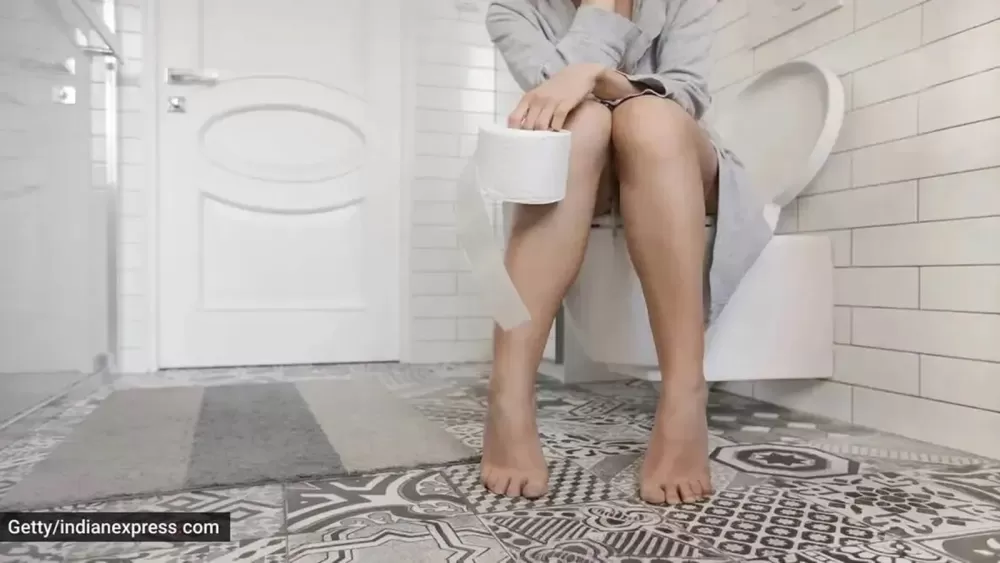The Unspeakable Truth About Being Stuck: When Your Gut Just Won't Go
Share- Nishadil
- October 31, 2025
- 0 Comments
- 5 minutes read
- 45 Views

Stuck for a Week? Here's How to Get Your Gut Moving Again.
When your digestive system hits a major roadblock, it's not just uncomfortable—it's a real worry. This article delves into why you might be stuck for days and offers straightforward, expert-backed strategies to gently encourage things along.
Ah, constipation. It’s one of those deeply personal, incredibly uncomfortable topics we tend to shy away from, isn't it? But honestly, when you haven't had a bowel movement in, say, a whole week, well, it stops being a mere inconvenience and starts feeling like a rather urgent, pressing problem—literally.
You know, the kind of situation where you begin to obsess over every tiny cramp, every little gurgle (or lack thereof), wondering if you’ll ever feel 'normal' again. And you’re not alone in this; a surprising number of people experience prolonged periods of being truly stuck. But what exactly qualifies as constipation, and more importantly, what can one actually do when things grind to a complete halt?
Typically, doctors will tell you that having fewer than three bowel movements a week falls under the umbrella of constipation. Yet, it’s not just about frequency; it’s also about the effort involved, the discomfort, and the consistency of what little does pass. When a full week goes by without relief, it's a clear signal that your digestive system is, shall we say, in a bit of a deadlock. And this isn't just a minor discomfort; prolonged constipation can lead to a whole host of other issues, so addressing it becomes paramount.
So, why does it happen? Often, the culprits are quite simple, yet easily overlooked. For many, it boils down to a lack of dietary fibre. Fibre, you see, acts like a sort of internal scrub brush, adding bulk to your stool and helping it move smoothly through your intestines. Without enough of it, things tend to get, well, rather solid and slow. Paired with that, inadequate water intake is a massive problem. Our bodies, in truth, are mostly water, and our digestive system absolutely relies on it to keep things soft and flowing. If you're dehydrated, your body will actually pull water from your stool, making it harder and more difficult to pass. But wait, there’s more! A sedentary lifestyle—spending too much time sitting—can also contribute, as physical activity helps stimulate those intestinal contractions. Certain medications, stress, and even ignoring the natural urge to go can also play significant roles. It's a complex dance, this gut business.
Right, so what’s the plan when you’re truly, genuinely stuck? The good news is that for most cases, the solutions are remarkably straightforward, even if they require a little patience. First things first: fibre. Now, don't just suddenly load up on a massive amount, as that can actually worsen things initially. Instead, gradually increase your intake of fibre-rich foods. Think fruits, vegetables, whole grains, and legumes. Apples, pears, berries, leafy greens, oats—these are your friends here. Make it a conscious effort, perhaps one extra serving a day, building up slowly.
Then, and this is crucial, drink water. And when I say water, I mean water. Not sugary drinks, not excessive coffee, but good old H2O. Aim for at least 8-10 glasses daily. Hydration isn’t just about quenching thirst; it’s about lubricating your internal machinery. You might be surprised how quickly this alone can make a difference. And hey, while we’re talking about fluids, warm water or herbal teas can sometimes offer a soothing kickstart.
Beyond diet, get moving! You don't need to run a marathon, not at all. Even a brisk 30-minute walk each day can do wonders for stimulating your gut. Physical activity helps wake up those lazy bowel muscles. Also, try to establish a regular bathroom routine. Your body loves rhythm, and dedicating a specific time each day—perhaps after breakfast—can train your system to be more predictable. And for goodness sake, when you feel the urge, don't put it off! Ignoring your body’s signals is a surefire way to exacerbate the problem.
Some folks also find relief with probiotics, which introduce beneficial bacteria into your gut, helping to rebalance your microbiome. Yoghurt with live cultures, kefir, or a probiotic supplement could be worth exploring, but always consult with a professional before adding new supplements, you know, just to be safe.
Now, while these steps are incredibly effective for many, there are times when you absolutely, unequivocally need to see a doctor. If you’re experiencing severe abdominal pain, if there’s blood in your stool, if you have unexplained weight loss, or if your bowel habits suddenly and drastically change for no apparent reason, don’t hesitate. These symptoms could indicate something more serious that requires medical attention. A healthcare professional can help diagnose the underlying cause and recommend appropriate treatments, ensuring you get back to feeling yourself sooner rather than later. Your gut, after all, is pretty important, and listening to it—and giving it the care it needs—is perhaps the most human thing you can do.
Disclaimer: This article was generated in part using artificial intelligence and may contain errors or omissions. The content is provided for informational purposes only and does not constitute professional advice. We makes no representations or warranties regarding its accuracy, completeness, or reliability. Readers are advised to verify the information independently before relying on







